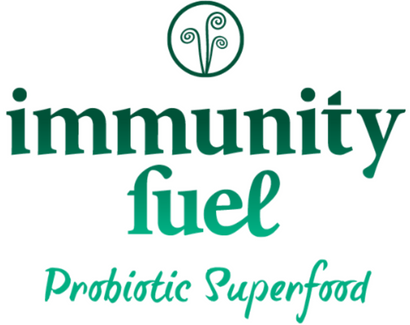Flat Rate Shipping AUS-Wide | Free Shipping Over $150 | Subscribe & Save
Flat Rate Shipping AUS-Wide | Free Shipping Over $150 | Subscribe & Save
Insight into Inflammation: 10 Tips for Effective Management
June 27, 2024 3 min read

WHAT IS INFLAMMATION?
Inflammation is caused by the body's immune response to an irritant. It is how your body reacts when it's trying to protect itself from something harmful, like germs or injuries.
Inflammation is an important part of your immune system's defence and when inflammation happens, more blood flows to the area, making it look red and feel warm.
Fluid can also build up, causing swelling. This process can be painful and might limit how well the affected part works.
Acute inflammation is short-term and helps the body heal, but chronic inflammation, which lasts a long time, can be a problem and is connected to diseases like arthritis and asthma.
Chronic inflammation can also lead to weight gain and disorders such as leaky gut. Stress, inflammatory foods, and low activity levels can make this risk even greater. However, studies demonstrate that some foods can fight inflammation.
Leaky gut creates a low-grade inflammation in reaction to food particles, that literally leak through your gut wall. This causes food sensitivities, especially to gluten and dairy, and also triggers many other health problems including fatigue, brain fog, headaches, depression, allergies, sinus, irritable bowel, reflux, joint pain and acne.
Inflammation can also cause weight gain which is triggered by insulin resistance, food sensitivities and food allergies.
Understanding these types of inflammation helps us manage our health better.
10 WAYS TO COMBAT INFLAMMATION
1. Eat Anti-inflammatory Foods: Include plenty of fruits, vegetables, whole grains, and healthy fats like those found in olive oil and fatty fish. See below for more anti-inflammatory foods...
2. Limit Sugar and Processed Foods: Reduce your intake of sugary snacks, beverages, and processed foods, which can promote inflammation.
3. Exercise Regularly: Physical activity helps reduce inflammation and supports overall immune function.
4. Manage Stress: Practice relaxation techniques such as deep breathing, meditation, or yoga to lower inflammation levels.
5. Get Enough Sleep: Aim for 7-9 hours of quality sleep each night to support your body's natural healing processes.
6. Stay Hydrated: Drink plenty of water to help flush out toxins and support cellular function.
7. Avoid Smoking and Limit Alcohol: Both smoking and excessive alcohol consumption can increase inflammation in the body.
8. Maintain a Healthy Weight: Obesity can contribute to chronic inflammation, so strive to achieve and maintain a healthy weight.
9. Consider Anti-inflammatory Supplements: Certain supplements like omega-3 fatty acids, turmeric, and ginger may help reduce inflammation. Studies show that probiotics can have a pivotal effect on the modulation of immune and inflammatory mechanisms.
10. Consult with a Healthcare Professional: If you have chronic inflammation or specific health concerns, seek guidance from a healthcare provider for personalized advice and treatment options.
These tips can help you reduce inflammation and promote overall health and well-being.
10 ANTI-INFLAMMATORY FOODS
Here are 10 of the best anti-inflammatory foods to include on your shopping list:
1. Wild Caught Salmon: Omega-3 fatty acids fight inflammation and these fish are a great source.
2. Whole Grains: We have heard time and time again to cut out the white, refined flour so this is just one more reason to do it!
3. Dark, Leafy Greens: Endless benefits!!! try to include them in every meal, add them to your daily smoothie, (great way to hide them from the kids)
4. Nuts: Almonds, walnuts, pecans, cashews and more. Again, the omega-3 fatty acids are loaded in all kinds of nuts.
5. Spices:ginger, turmeric, cinnamon, cayenne pepper are known for their anti-inflammatory properties due to the presence of bioactive compounds like gingerol, curcumin, cinnamaldehyde, and capsaicin, respectively.
6. Berries: These fruits are loaded with anti-oxidants as well so load up on your berries!
7. Garlic: an anti-inflammation powerhouse!
8. Olive Oil: Many studies on the Mediterranean diet that is rich in extra virgin olive oil show the benefits when it comes to combating inflammation.
9. Avocados: Avocados are a good source of vitamin E, a micronutrient with anti-inflammatory effects.
10. Beans. These are a great protein source and high in fiber as well!
PROBIOTICS FOR INFLAMMATION
Don't forget to add probiotic foods, fermented foods or probiotic supplements to you daily diet to ensure your gut is in top condition. It is well known that probiotics have an anti-inflammatory effect, stimulating regulatory cells of the immune system to inhibit inflammation.
Probiotics, which are beneficial bacteria that live in our gut, help to maintain a balanced microbial environment in the intestines, which is crucial for immune system regulation and in turn for managing inflammation.
Studies suggest that certain strains of probiotics can reduce levels of pro-inflammatory markers in the body and promote the production of anti-inflammatory compounds.
By improving the gut barrier function, probiotics may help to prevent harmful substances from leaking into the bloodstream and triggering systemic inflammation.
Additionally, probiotics can influence immune cells directly in the gut and throughout the body, further modulating the inflammatory response.
Incorporating probiotic-rich foods like yogurt, kefir, and sauerkraut, as well as taking good quality probiotic supplements with live bacteria, may be beneficial in managing inflammation and supporting overall health.
